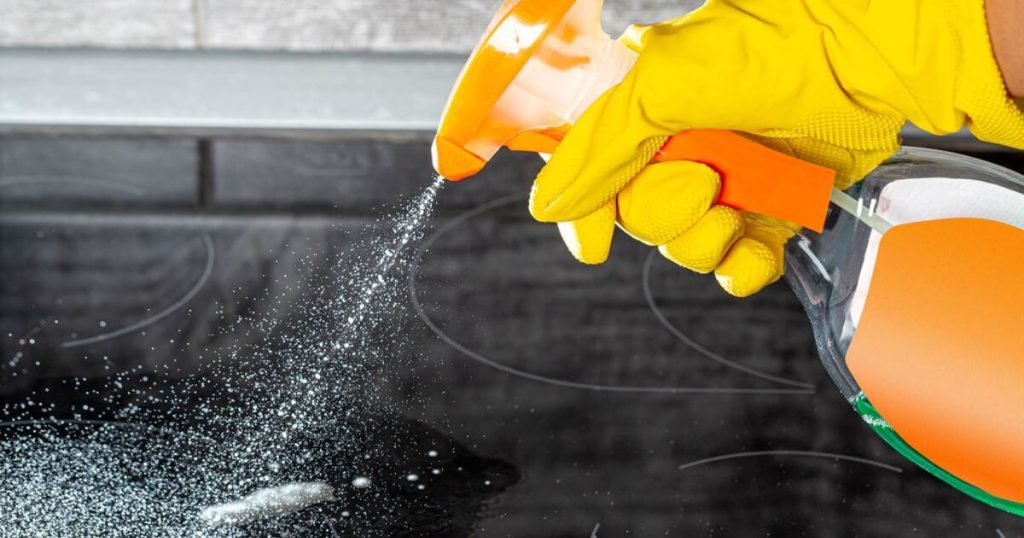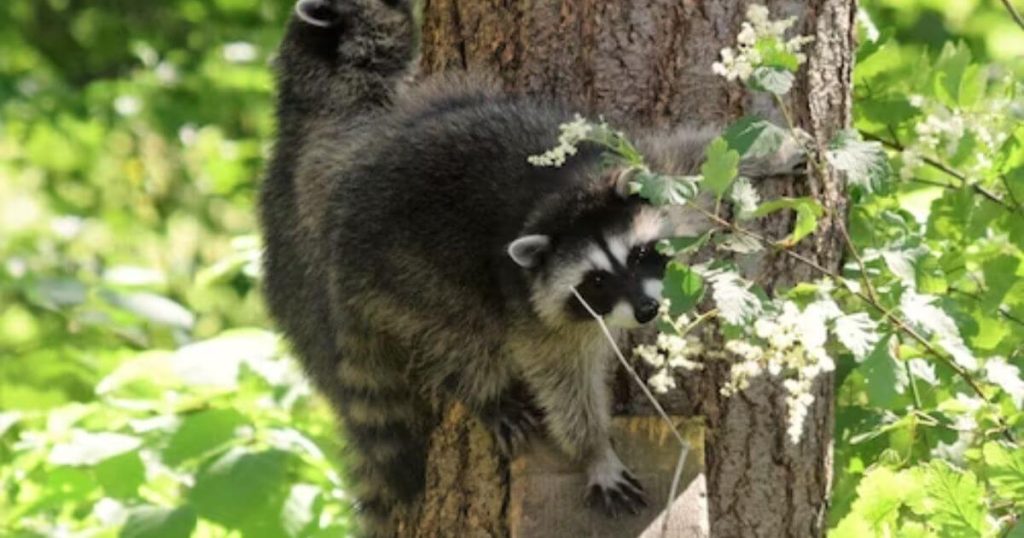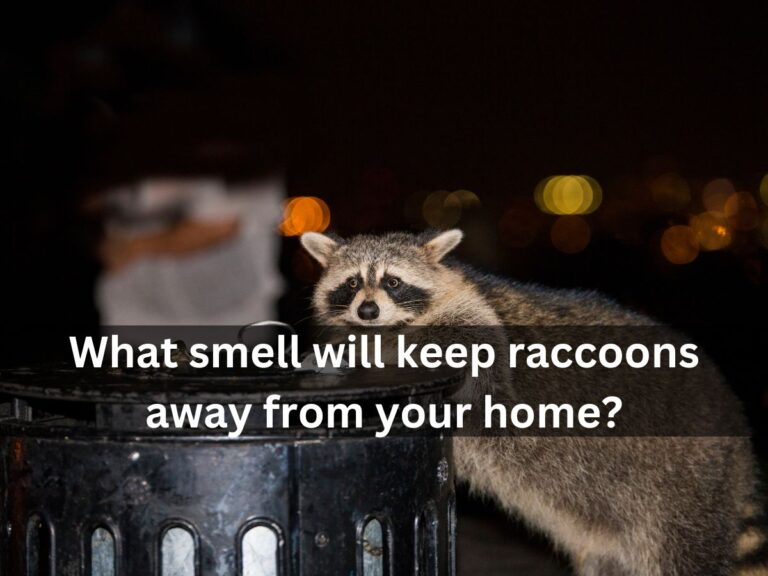Will Bleach Keep Raccoons Away? Yes! How?
The masked bandits will terrorize your trash can and create havoc if you don’t find a way to keep them off your compound. One mentioned way you can repel raccoons is using bleach.
But will bleach keep raccoons away? YES – Bleach is a chemical that produces a strong, unpleasant smell when it comes into contact with air. This smell is repulsive to raccoons, and will avoid any areas where bleach has been used. It leverages raccoons’ instinctive aversion to strong chemical smells as a simple, non-lethal deterrent.
Understanding how and where to apply the bleach will ensure you create an effective raccoon repellent. Read on to learn more.
Will Bleach Keep Raccoons Away?

Raccoons are known to cause nuisance problems by scavenging for food in residential areas. Bleach chemical properties can be exploited as part of an integrated pest management strategy.
Bleach, sodium hypochlorite, is known for its bleaching and disinfecting abilities. When raccoons come into contact with locations treated with dilute bleach solutions, their keen sense of smell allows them to detect the chemical. But that isn’t what you need.
Sodium hypochlorite has a strong, pungent odor that raccoons generally find unpleasant and want to avoid. It leverages raccoons’ instinctive aversion to strong chemical smells as a simple, non-lethal deterrent.
The idea is that by spraying or wiping down areas where raccoons tend to congregate or enter, such as trash cans and compost bins, the lingering scent of bleach may discourage them from frequenting those locations. However, the effect is temporary, as bleach does not leave a long-lasting residual. Raccoons may also habituate to the smell over time if the areas continue to provide food sources.
Rather than bleach alone, an integrated approach combining exclusion methods to block access points, remove attractants, and occasional olfactory deterrence using bleach in problem areas offers the best chance of changing raccoon behavior. Proper dilution and safe handling of bleach solutions is also important to reduce harm.
How To Use Bleach As Raccoon Repellent

As discussed above, chlorine bleach can potentially discourage raccoons due to its potent chlorine smell. To effectively exploit raccoons’ aversion, it is important to apply bleach solutions to maximize the strength and longevity of the deterring odor. Some recommendations include:
Prepare The Bleach For Application
Dilute one part household bleach with ten parts water to make a 10% bleach solution. Undiluted bleach can be toxic, while too weak a solution will not project a strong enough smell. The 10% concentration balances safety and odor potency.
Apply The Bleach
Use a spray bottle to liberally apply the bleach solution along baseboards, around potential entry points like doors and windows, and perimeter areas where raccoons tend to roam or forage. If you want to eliminate the raccoon in the trash can, spray some there, too. Reapply every 3-4 days or after rain to maintain the chlorine smell.
Alternatively, soak cotton balls or rags with the bleach solution and place them around the targeted locations. This allows the smell to dissipate slowly over a longer period than spraying.
Keep An Eye For Raccoon Infestation
Monitor areas after application for raccoon signs like tracks or droppings. Reapply the bleach solution more frequently if these indications suggest it is not keeping raccoons sufficiently deterred.
Reapply Every Few Days
The bleach smell will start to fade after a few days. Reapply the solution every 2-3 days to strengthen the deterring scent. Persistence is key, as raccoons may repeat the process several times to associate the area with an unwelcoming odor and stop returning. Be patient, as the bleach repellent works best as a prevention rather than an immediate deterrent.
Pro Tips on Using Bleach to Get Rid of Raccoons
When applied properly and as part of a comprehensive plan, bleach can be a useful tool to eliminate raccoons. However, it should not be relied upon as the sole method to repel them from your property. Here are some pro tips you should be aware of when using bleach as raccoon repellent:
- Combine scents: Raccoons rely heavily on their sense of smell, so overwhelming them with strong, unpleasant odors works best. Mix the bleach solution with other harsh scents like ammonia or vinegar. The combination of smells will be even more off-putting.
- Choose application sites wisely: Focus bleach treatments around obvious entry points like basement doors and ventilation areas. Also, they target raccoon latrines and foraging spots they regularly visit. Don’t waste products where raccoons aren’t active.
- Boost the solution: Increase the bleach concentration to 15-20% for particularly stubborn cases. Use caution, as stronger mixtures are more dangerous. This “turbocharged” repellent will carry an even stronger deterring scent.
- Reapply promptly: Check treated areas daily at first. Re-treat with a fresh solution when the chlorine smell starts fading, even in a few days. Being proactive keeps raccoons sensing danger.
- Use supplemental deterrents: Back up the bleach odor with other annoyances like lights, noise machines, or motion-activated sprinklers. A one-two punch will reinforce that the location is undesirable.
- Be prepared for multiple attempts: Raccoons are clever and may require several bouts of bleach treatment over several weeks before getting the hint. Persistence and following all the tips above will pay off.
Related:
Conclusion
Will bleach keep raccoons away? Bleach’s pungent smell proves to be strong and unpleasant to the raccoons. When used properly, it can be an effective component of an integrated raccoon management plan. But don’t rely on bleach alone, as raccoons may adapt over time. It is best used with exclusion methods and attractant removal for long-term property protection from unwanted raccoon visits. With diligence, patience, and a multi-pronged approach, bleach can help solve raccoon infestations.




